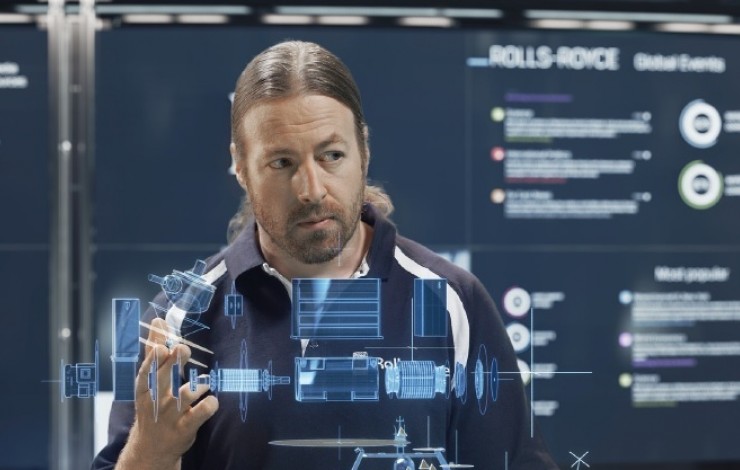In just a few days, Karno Tenovuo, Senior Vice President, Ship Intelligence of Rolls Royce, will share his knowledge and expertise with the participants of ICT Spring. The brand does not only produce luxury cars, it is also one of the leading companies currently transforming future marine operations and specializes in Ship Intelligence.
What does ship intelligence actually mean and consist of?
«Ship intelligence» is a portfolio of data based products and services - comprising equipment and system health management, optimization and decision support and remote and autonomous operations - which Rolls-Royce believes will revolutionize the landscape of ship design and operations. The use of ‘big data’, advanced automation and smart applications will change the way ships are designed and help ship owners and operators manage their ships and their fleets more efficiently, effectively and safely, saving them time and money.
Which technologies changed the way ships are operated and how?
Tens of innovations have revolutionized the way ships are operated. One can notably name new sensing technologies, object detection, new communication technologies, the Internet of Things, the Cloud, increased automation and robotics technology. These will definitely make vessels safer, easier and more efficient to operate.
It seems that various markets could benefit from these technologies, do you have a specific roadmap for leisure, business, or military applications?
We envisage a remotely operated vessel in local waters as the first stage and in operation by 2020. By 2025 we hope to have a remotely operated vessel at open sea and five years after that we expect unmanned ocean going vessels to be a common sight on the ocean.
Tugs, along with road ferries, are likely to be one of the first places we will see the commercial use of remotely operated and autonomous vessels. Tugs and road ferries are most likely to fall under the control of individual flag states. These have the capacity to make special dispensation for their operation.
It is unlikely that there will be a single autonomous solution applicable to all vessel types. Some could be completely autonomous and look radically different from current vessels. Others will be a blend of autonomous and remote control; sailing autonomously in open water independently picking the best route and speed and remotely controlled where more advanced manoeuvres are required – navigating in congested waters and entering and leaving port. Some, such as cruise ships, are always likely to need crew if only in a customer service, safety and reassurance capacity.
There’s still a cybersecurity challenge - specific views or partnerships on that?
Cybersecurity will be critical to the safe and successful operation of remote and autonomous vessels. Rolls-Royce will exploit nearly 20 years’ experience of cyber security in our Nuclear and Aero Businesses. The latter securely streams important and sensitive data from more than 10,500 engines belonging to over 1200 customers.
Risk is about likelihood and impact, the likelihood of a successful attack is a function of a criminal’s motivation and capability versus the technical barriers that we put in place. Though it may be difficult to have a clear picture of how motivated a criminal is to attack, we can control the risk by designing robust solutions and ensuring that projects have an acceptable level of risk for us, our customers and the general public.
Do you plan to empower AI in a near future?
Yes. We don’t plan to make rules-based solutions but rather develop capability based on machine learning and Artificial Intelligence.
The Grand Duchy is quite interested in logistics; do you plan a specific outcome from your presence in Luxembourg in May?
We really hope to develop strong partnerships in order to help us make our vision a reality.
Already published in BEAST #7 / www.beastmagazine.lu
By Alexandre Keilmann










